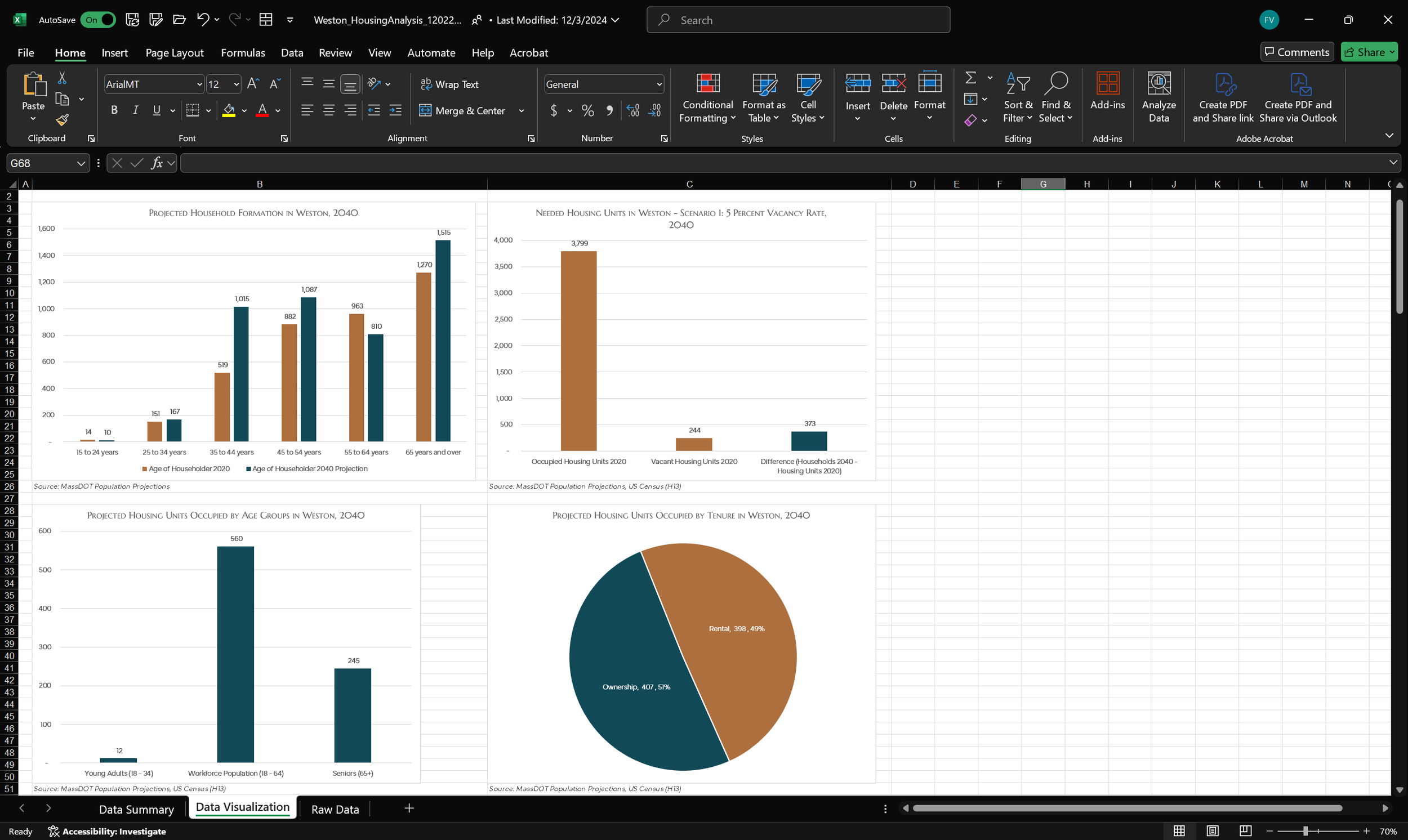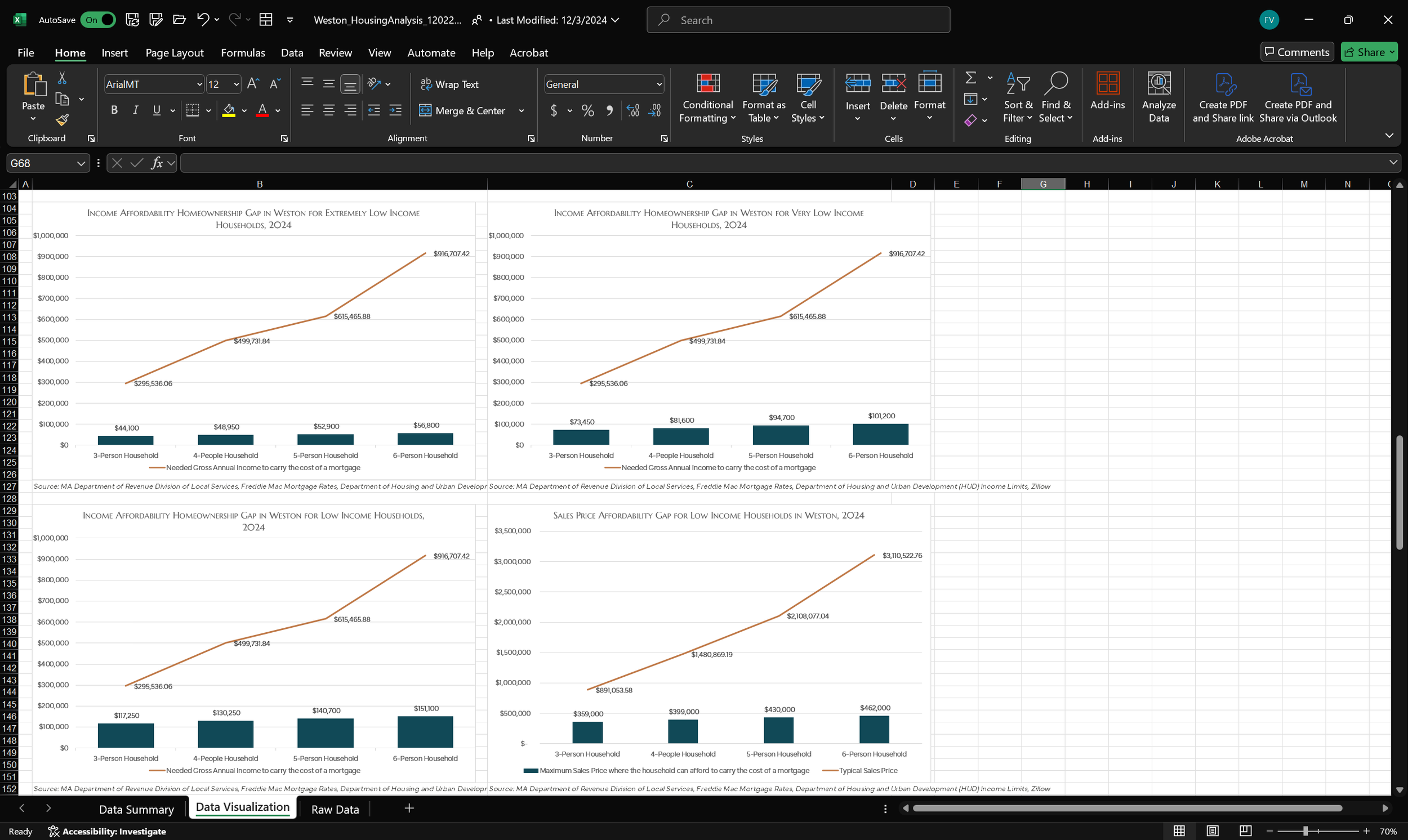housing forecast analyses
During my work at JM Goldson LLC, I participated in the development of a housing units forecast for the year 2040 in the Town of Weston, Massachusetts. The analysis follows a structured process that requires making key assumptions about how the population and housing market will evolve:
Calculating household formation rates based on current data to understand how new households are being created in the community.
Projecting household growth by applying the household formation rates to the demographic projections for 2040.
Estimating the number of required housing units, considering a 5% vacancy rate to ensure flexibility in the housing market.
Conducting supplementary analyses, such as housing needs by age group, tenure (ownership or rental), and unit size, along with affordability calculators to assess the population’s access to available housing options.
What is a housing forecast analysis?
It is an analysis that estimates how many homes will be needed in the future based on population growth and new household formation. It relies on demographic and economic projections, household formation rates, and real estate market data.
This analysis is essential because it helps municipalities proactively plan their urban development. It allows them to define strategies to ensure that enough housing is available for different population groups, preventing housing shortages and ensuring that the housing supply remains accessible to the community.

The household projection is made by multiplying the household formation rate by the population projection

This calculates how many housing units will be needed for different age groups of heads of household

The housing unit forecast involves other indicators such as the vacancy rate of 5%.

Affordability calculators calculate what would be the minimum household salary needed to carry the cost of a mortgage

The number of housing units by number of bedrooms is one of the complementary analyses